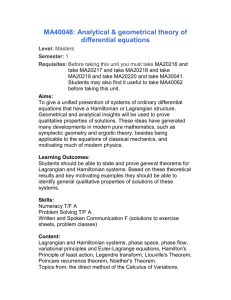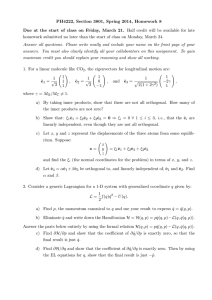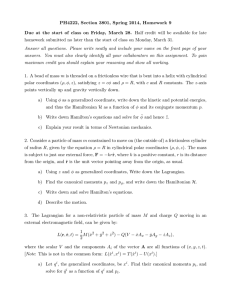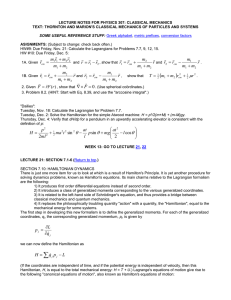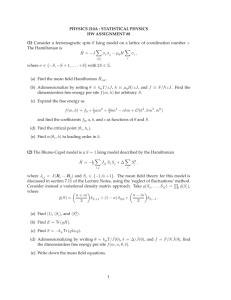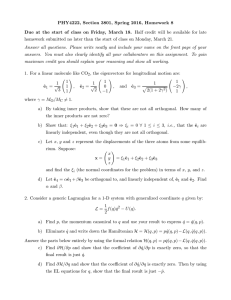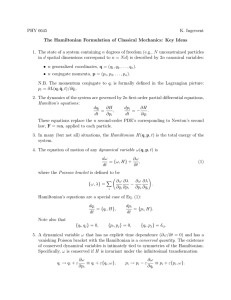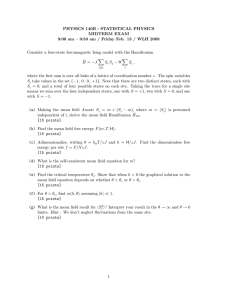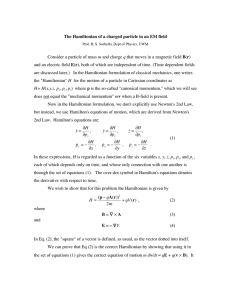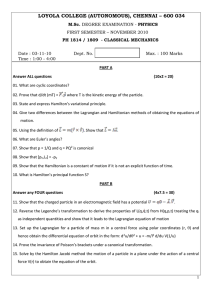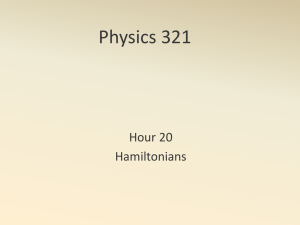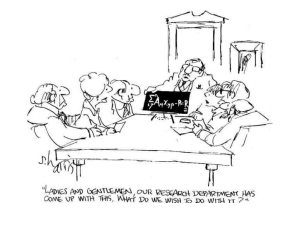PHY4222, Section 3801, Spring 2016, Homework 9
advertisement
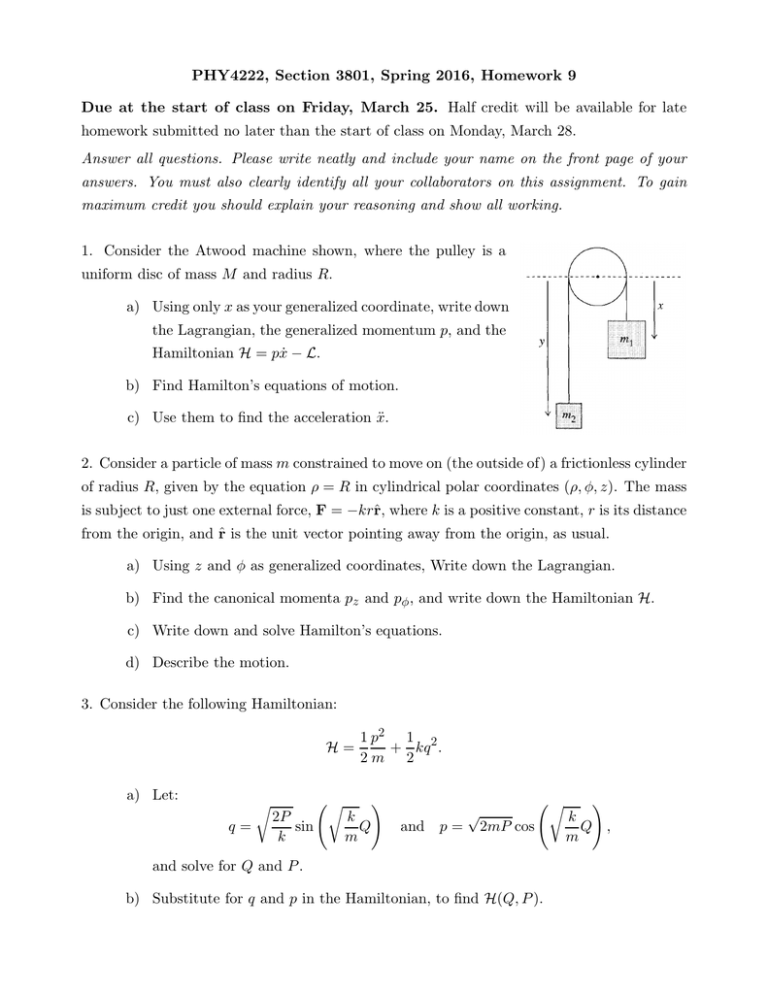
PHY4222, Section 3801, Spring 2016, Homework 9 Due at the start of class on Friday, March 25. Half credit will be available for late homework submitted no later than the start of class on Monday, March 28. Answer all questions. Please write neatly and include your name on the front page of your answers. You must also clearly identify all your collaborators on this assignment. To gain maximum credit you should explain your reasoning and show all working. 1. Consider the Atwood machine shown, where the pulley is a uniform disc of mass M and radius R. a) Using only x as your generalized coordinate, write down the Lagrangian, the generalized momentum p, and the Hamiltonian H = pẋ − L. b) Find Hamilton’s equations of motion. c) Use them to find the acceleration ẍ. 2. Consider a particle of mass m constrained to move on (the outside of) a frictionless cylinder of radius R, given by the equation ρ = R in cylindrical polar coordinates (ρ, φ, z). The mass is subject to just one external force, F = −krr̂, where k is a positive constant, r is its distance from the origin, and r̂ is the unit vector pointing away from the origin, as usual. a) Using z and φ as generalized coordinates, Write down the Lagrangian. b) Find the canonical momenta pz and pφ , and write down the Hamiltonian H. c) Write down and solve Hamilton’s equations. d) Describe the motion. 3. Consider the following Hamiltonian: H= 1 p2 1 2 + kq . 2m 2 a) Let: q= r 2P sin k r k Q m ! and p= √ 2mP cos and solve for Q and P . b) Substitute for q and p in the Hamiltonian, to find H(Q, P ). r ! k Q , m c) By using Hamilton’s equations in q and p, show that: ∂H = −Ṗ ∂Q and ∂H = Q̇. ∂P d) Solve these equations for Q and P as functions of time. Express your results in terms of the initial state for (q, p). 2
